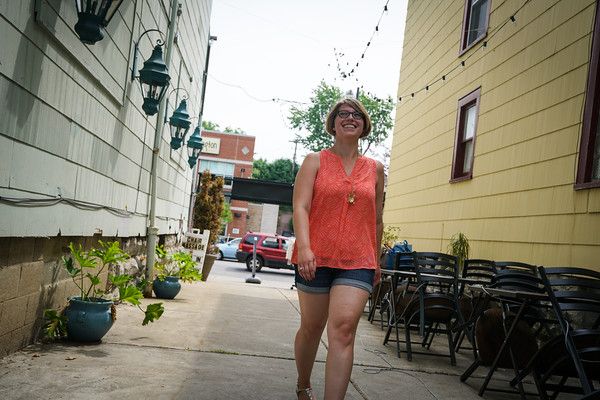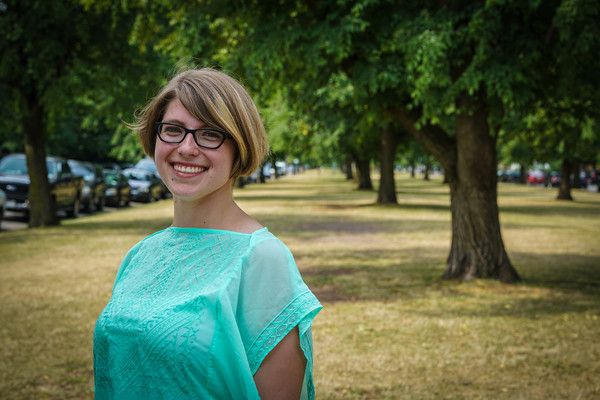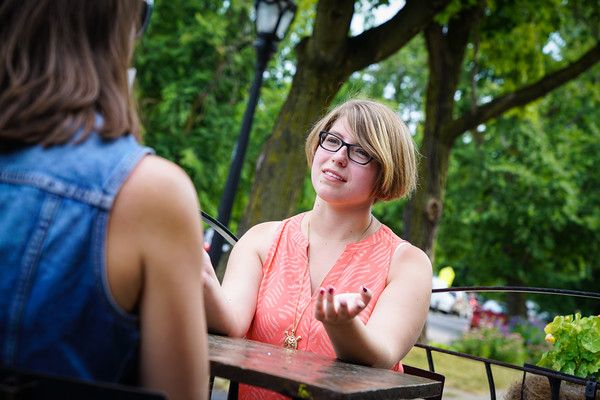"I shouldn’t be ashamed of the fact that I had cancer – I should be proud of how much I've accomplished since I went through it."
Everyone has a story to tell. Whether on a first date, job interview or happy hour with a new friend, there’s always a select version of our story that we choose to share. It usually includes where we went to school and how we found ourselves where we are today.
Cancer puts a big roadblock in your story, especially for young adults. It happens at a time in your life when everything is moving pretty fast. Out of nowhere, your entire life is put on pause while all of your friends keep on moving.
Even when it’s over, you now have this period in your life from diagnosis through treatment, spanning from a few months to even a few years, which is really hard to explain. Instead of being fun and exciting, meeting new people to date or interviewing for a job becomes incredibly nerve-wracking. How much is appropriate to say? Should I say anything? Will they judge me for this? The sea of questions never ends.
In April, I had the pleasure of attending the annual Young Adult Wellness Retreat, a day offered to survivors and patients in the Young Adult Cancer Program. Dan Dean, the founder of MPowerment and survivor himself, led us all in an incredibly insightful exercise in reframing our stories.
Never miss another Cancer Talk blog!
Sign up to receive our monthly Cancer Talk e-newsletter.
Sign up!Through the years since his diagnosis, Dean told us the many versions of his story he’s told to women while on dates and how none of them worked. Even though it’s important to only tell the full story to people who deserve to hear it, it can be really hard to figure out how to talk about it without being a Debbie Downer.
The best piece of advice he gave us was to remain positive. Even though cancer is an intense and typically negative experience that none of us want to relive, it has led us to a new place in our lives. In his case, it inspired him to found MPowerment and work to help male survivors feel more empowered after their cancer experience and get through the challenges faced by patients and survivors.
In my case, I thought back to a job interview I had in August 2014, just one month after I had been given the all-clear. In it, I was asked about my bizarre and abrupt resume gap, and I answered honestly….very honestly. I went in-depth about why I moved out of my New York City apartment, the kind of surgery I had, etc.
I didn’t get that job.
Almost three years later, that exercise at our retreat helped me figure out where I went wrong. I shouldn’t be ashamed of the fact that I had cancer – I should be proud of how I have really taken good care of myself and pursued my passions since I went through it. Instead of talking about it in conversation like it was a fungus on my life or a roadblock on a promising path, I should talk about how it made me reprioritize my life and rediscover community theater. I should talk about how that brought me to my fiancé and gave me the confidence I needed to pursue a career I love.
That’s the story I should be telling.
Editor’s Note: Cancer patient outcomes and experiences may vary, even for those with the same type of cancer. An individual patient’s story should not be used as a prediction of how another patient will respond to treatment. Roswell Park is transparent about the survival rates of our patients as compared to national standards, and provides this information, when available, within the cancer type sections of this website.


